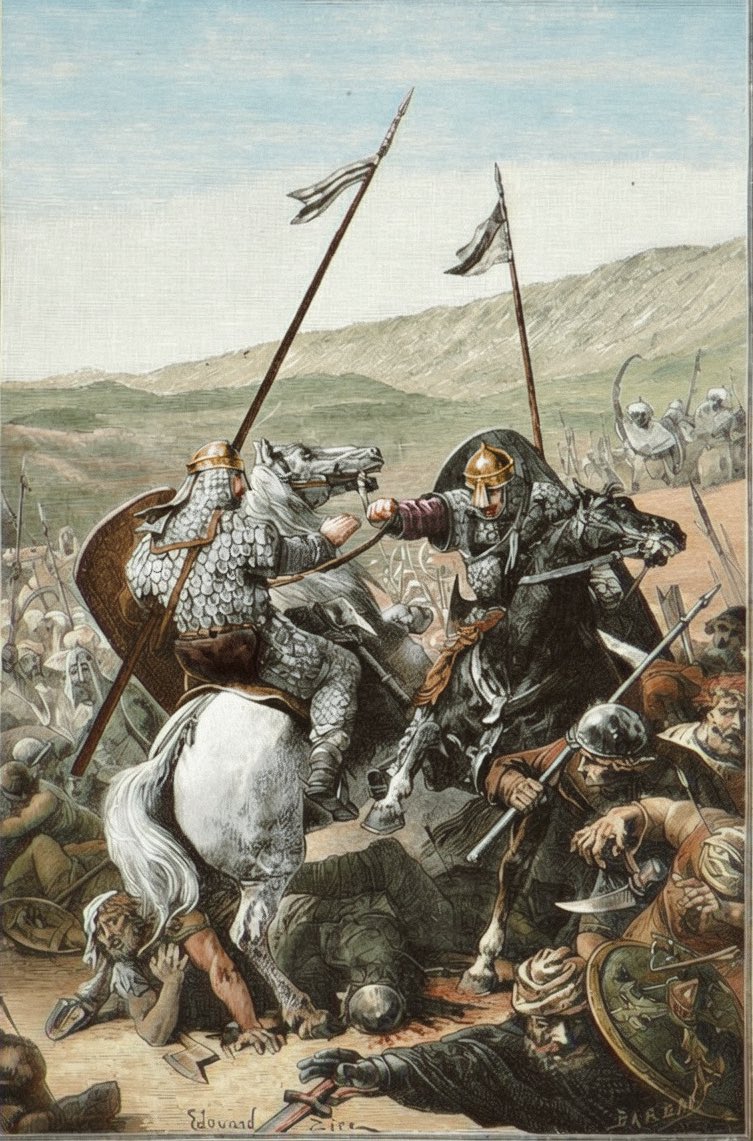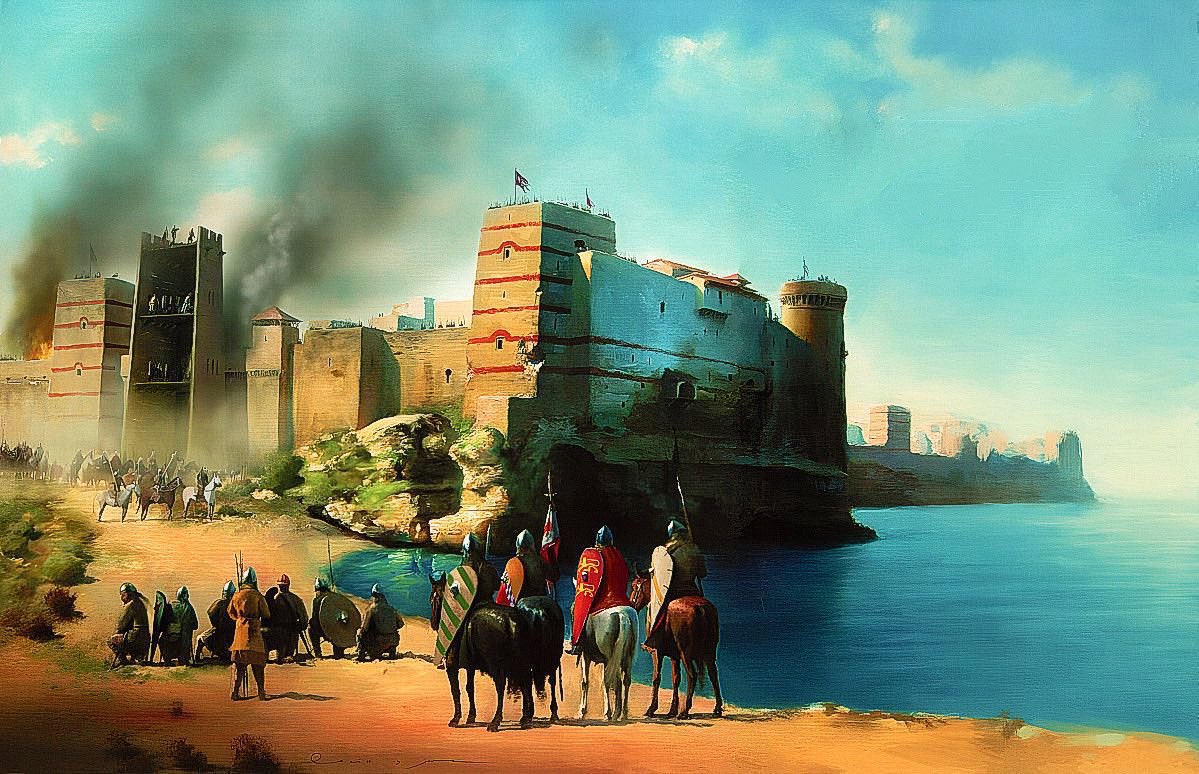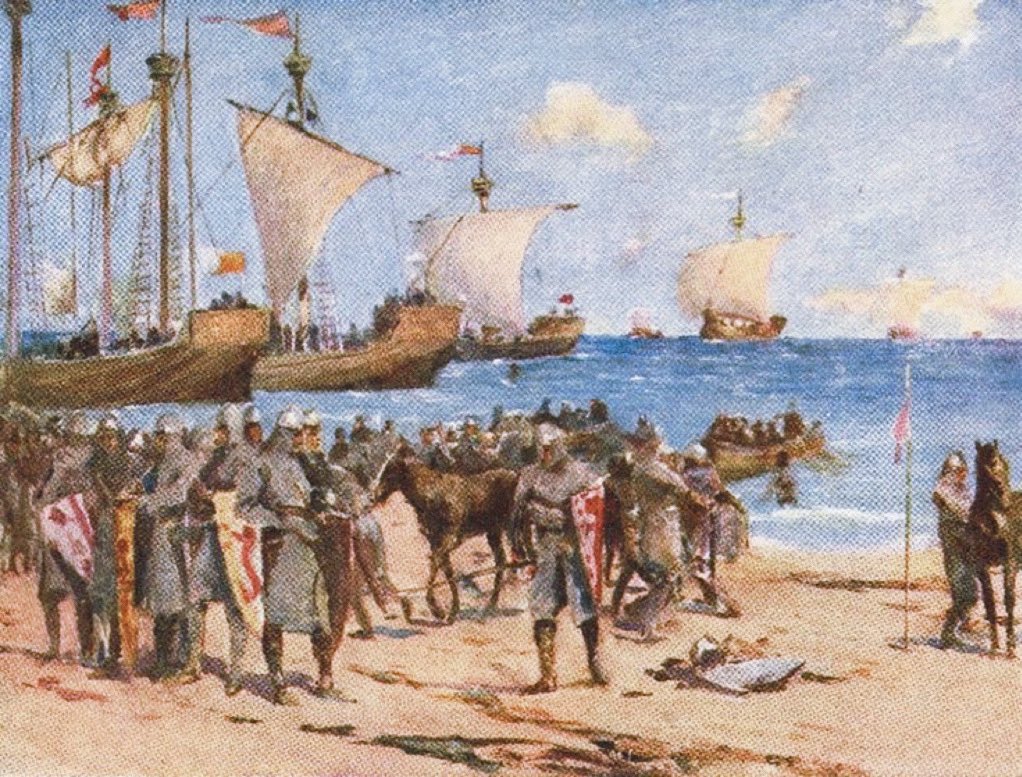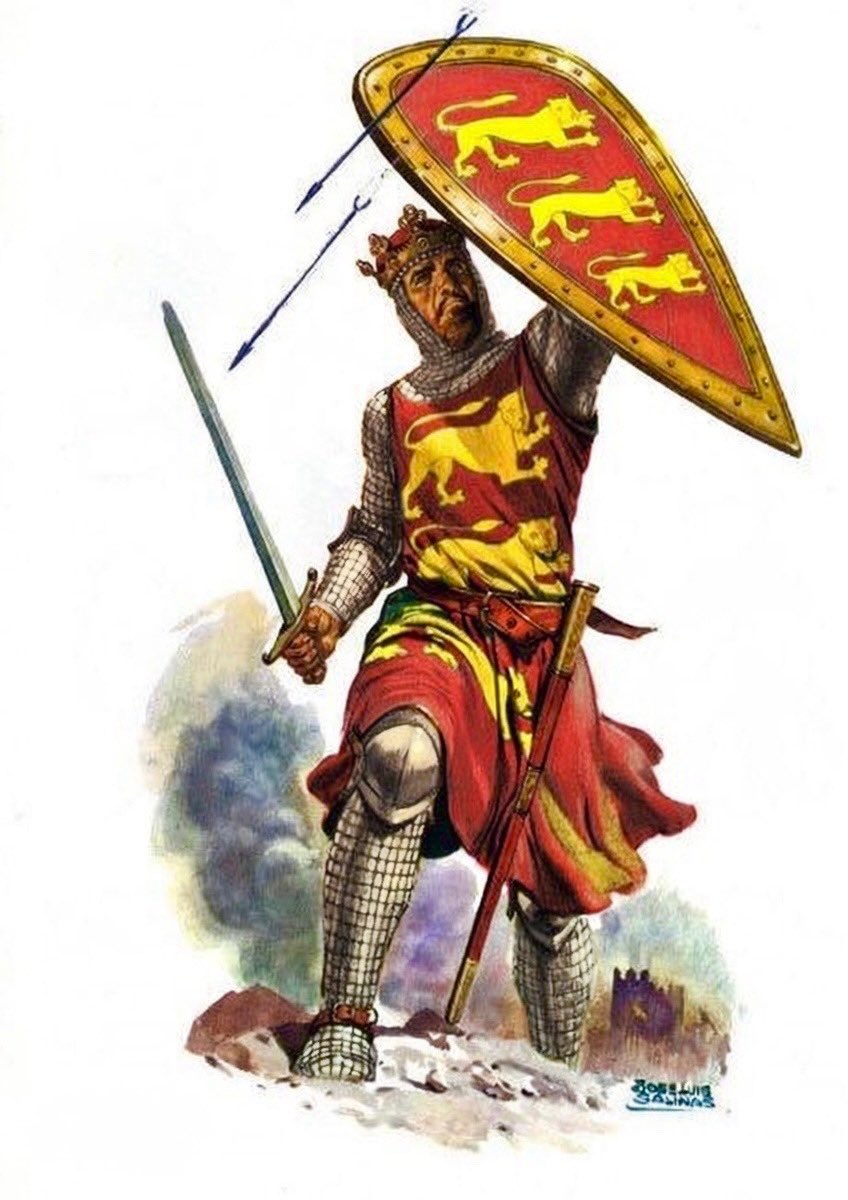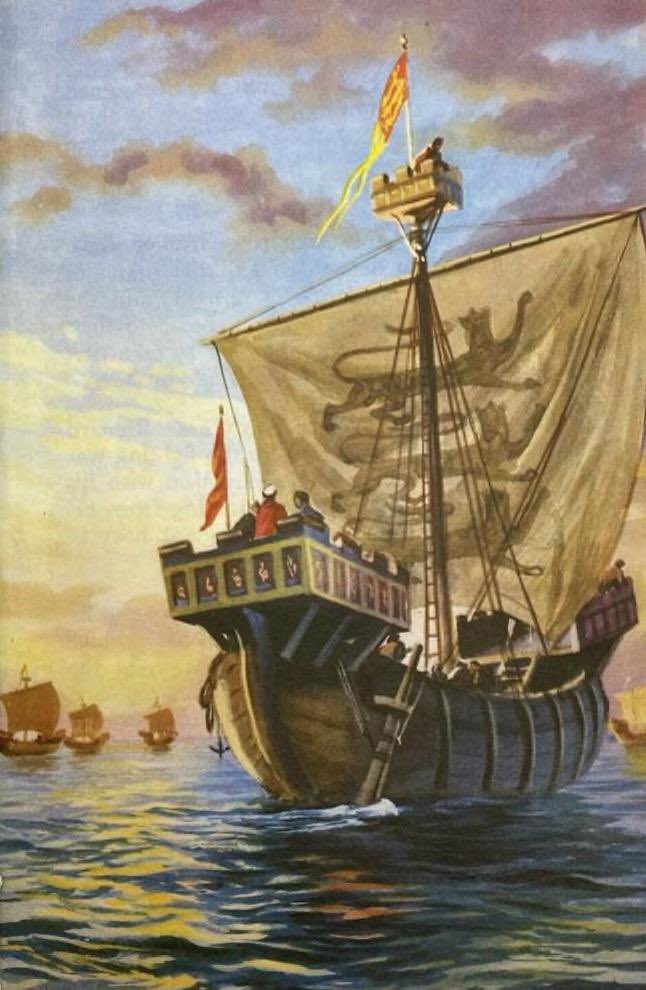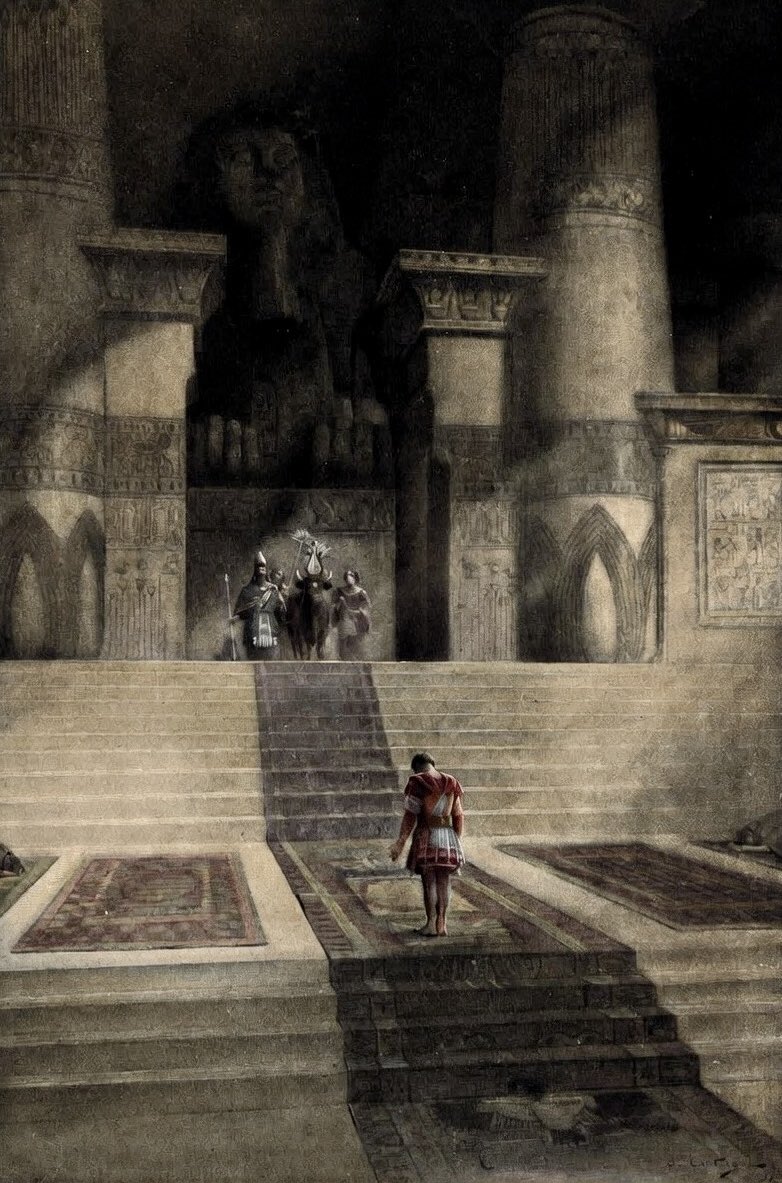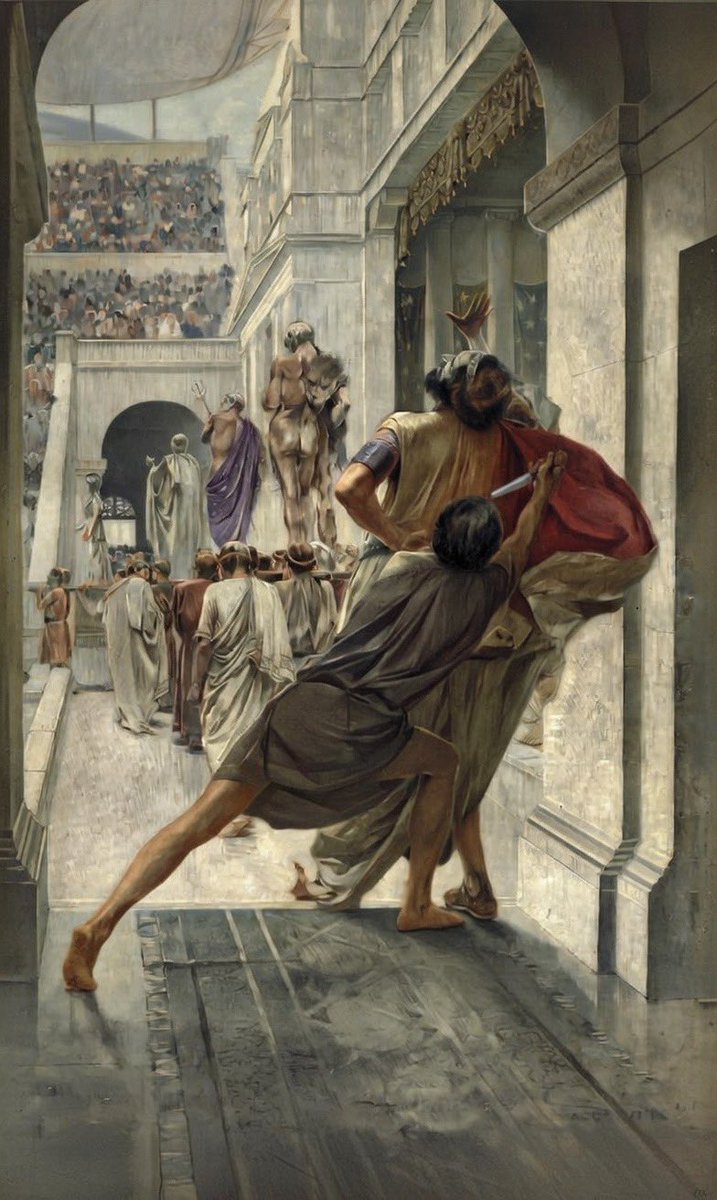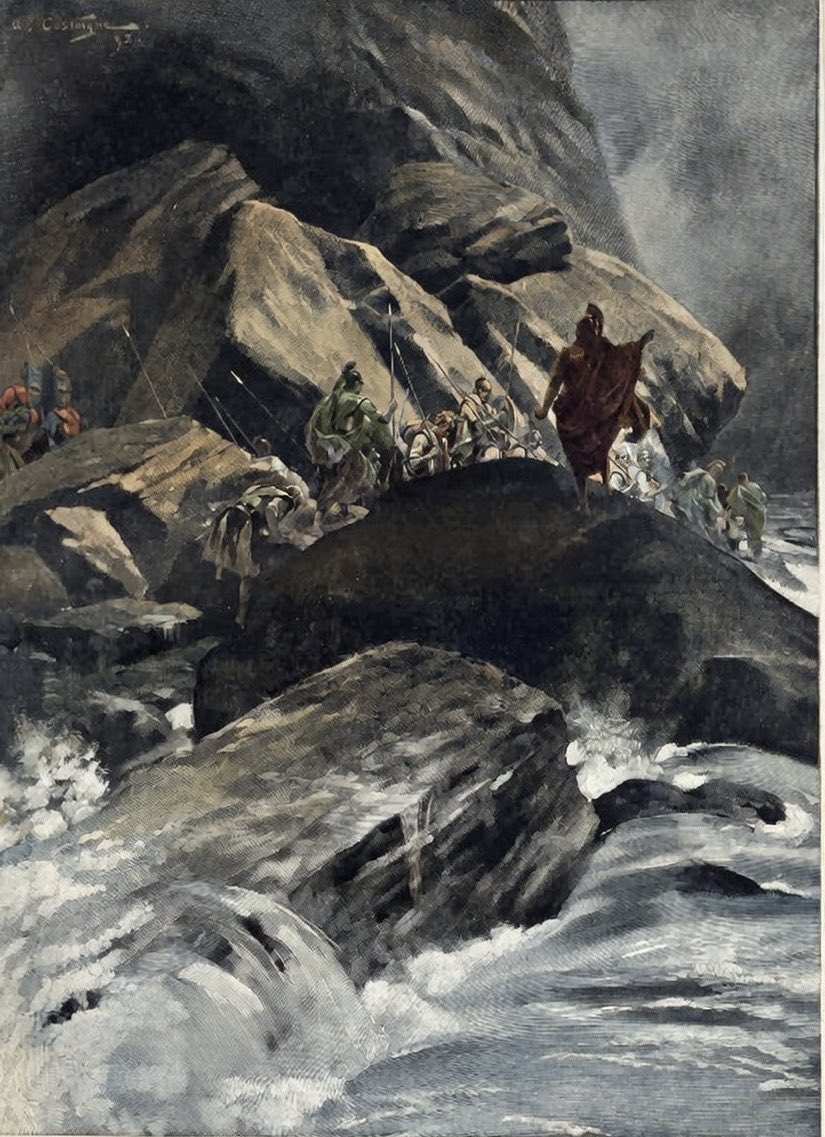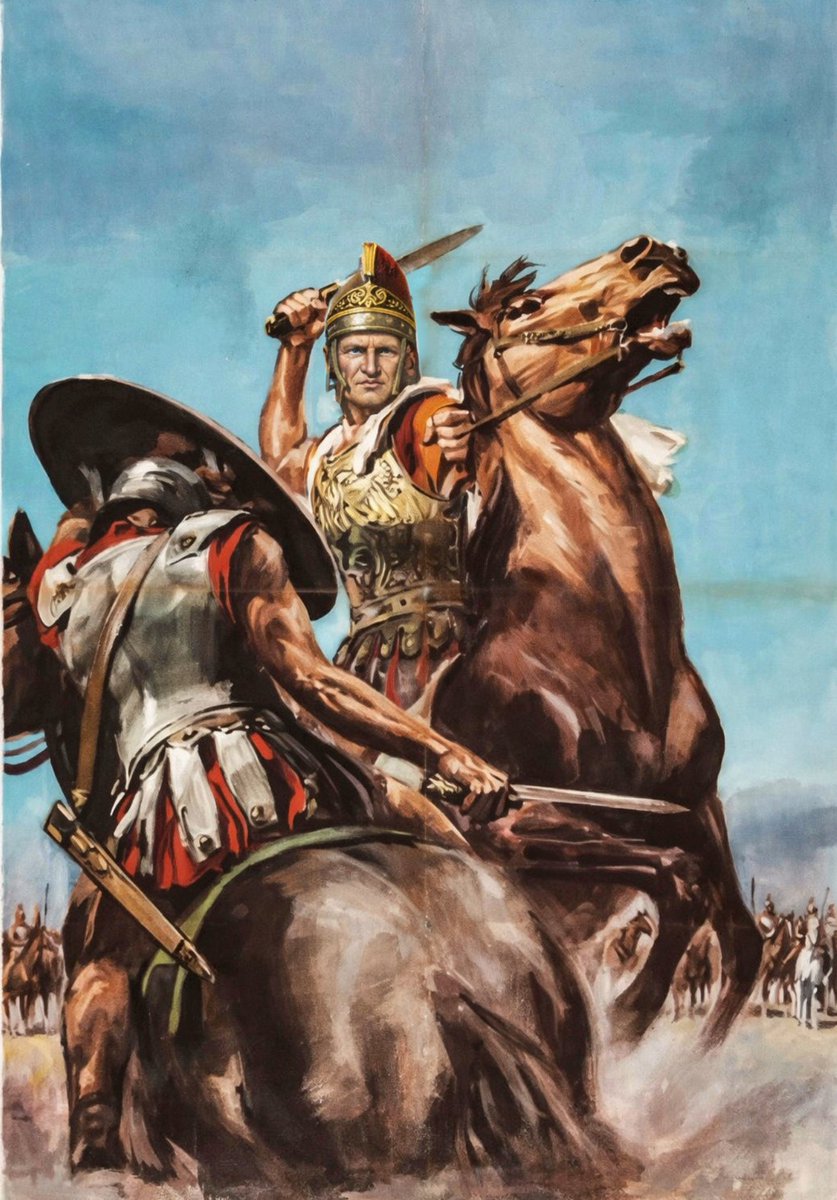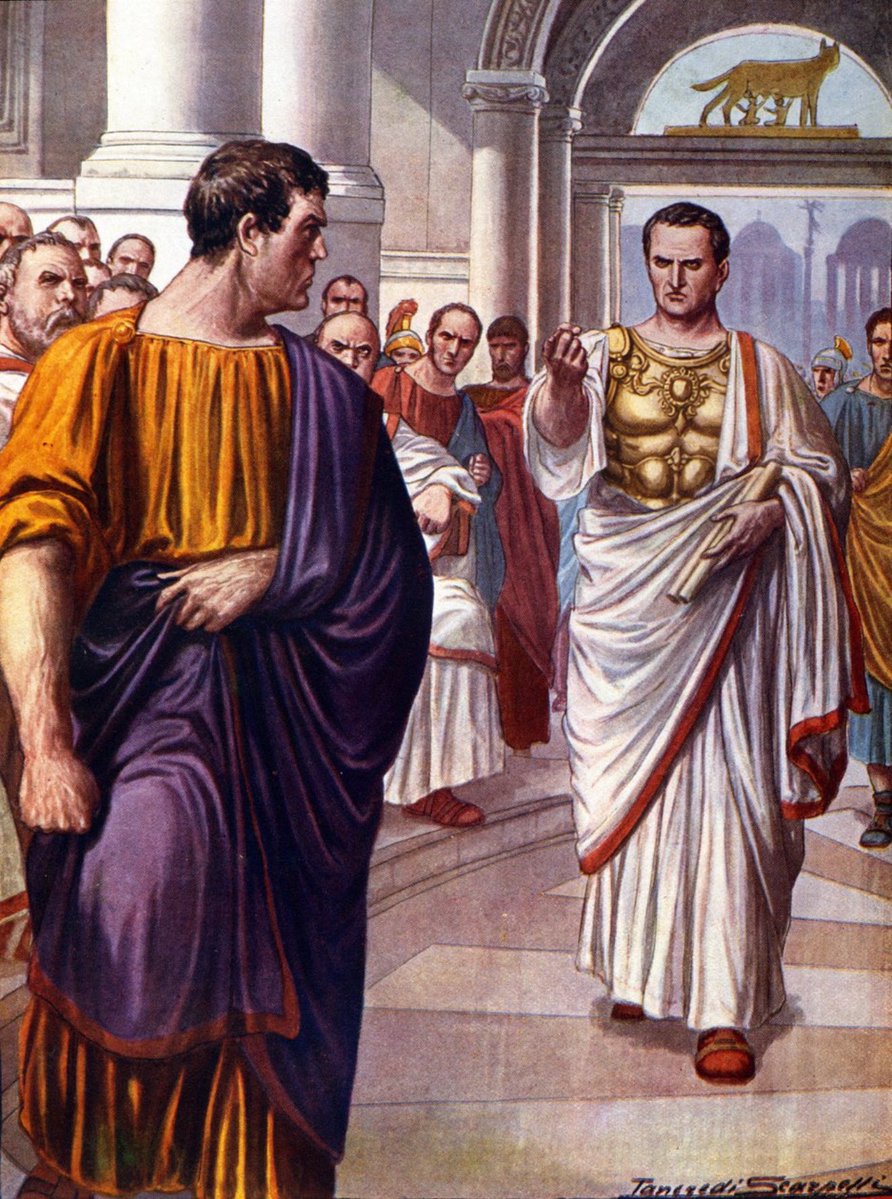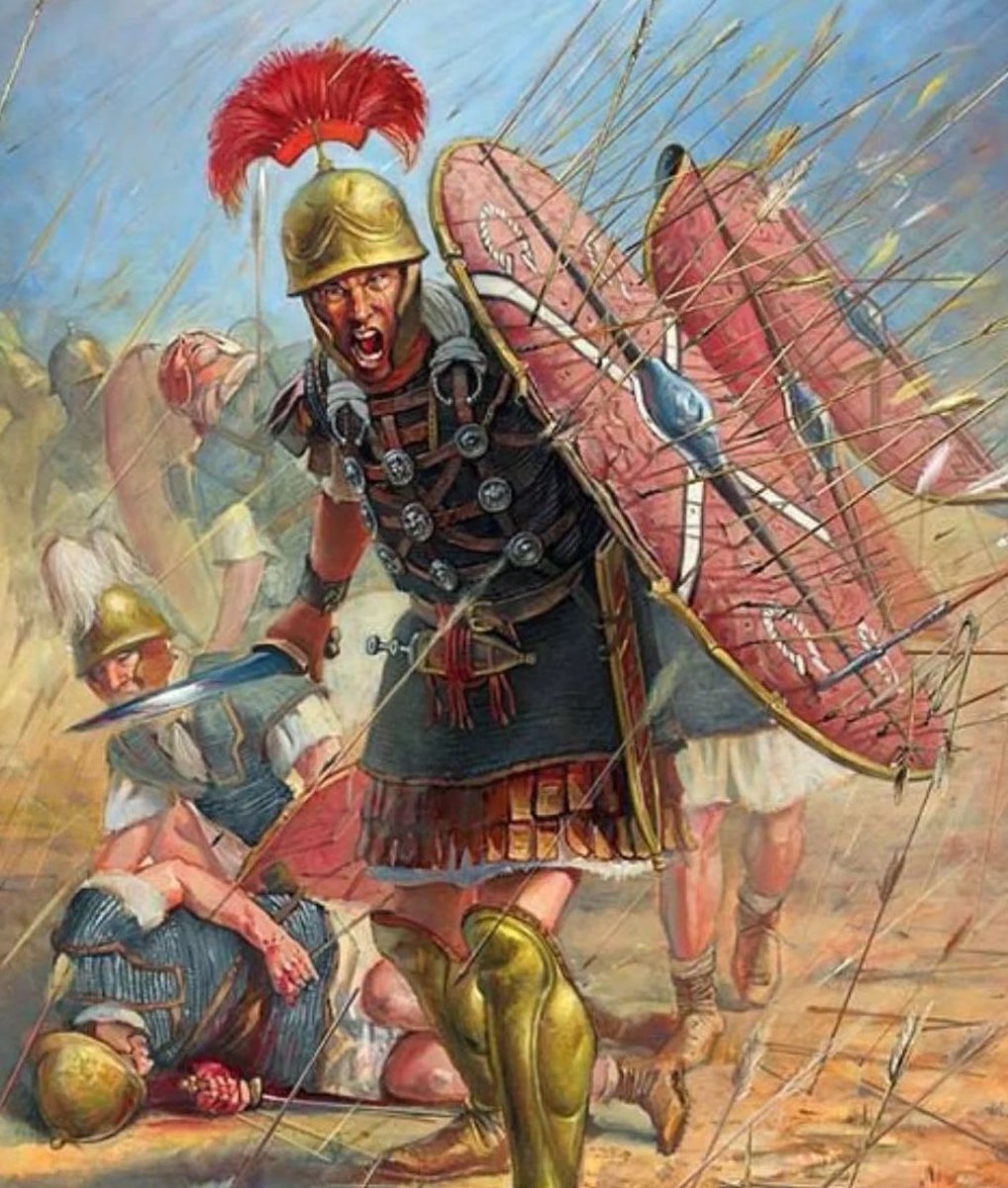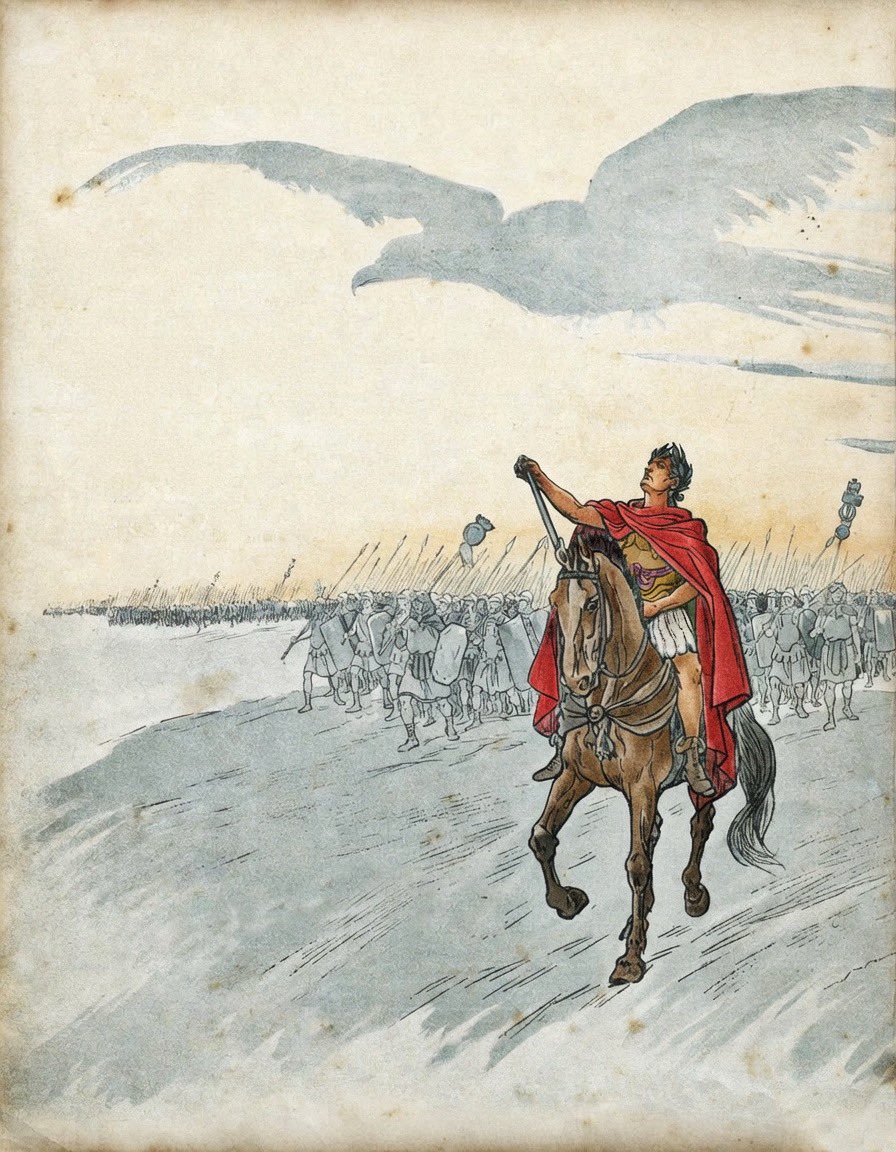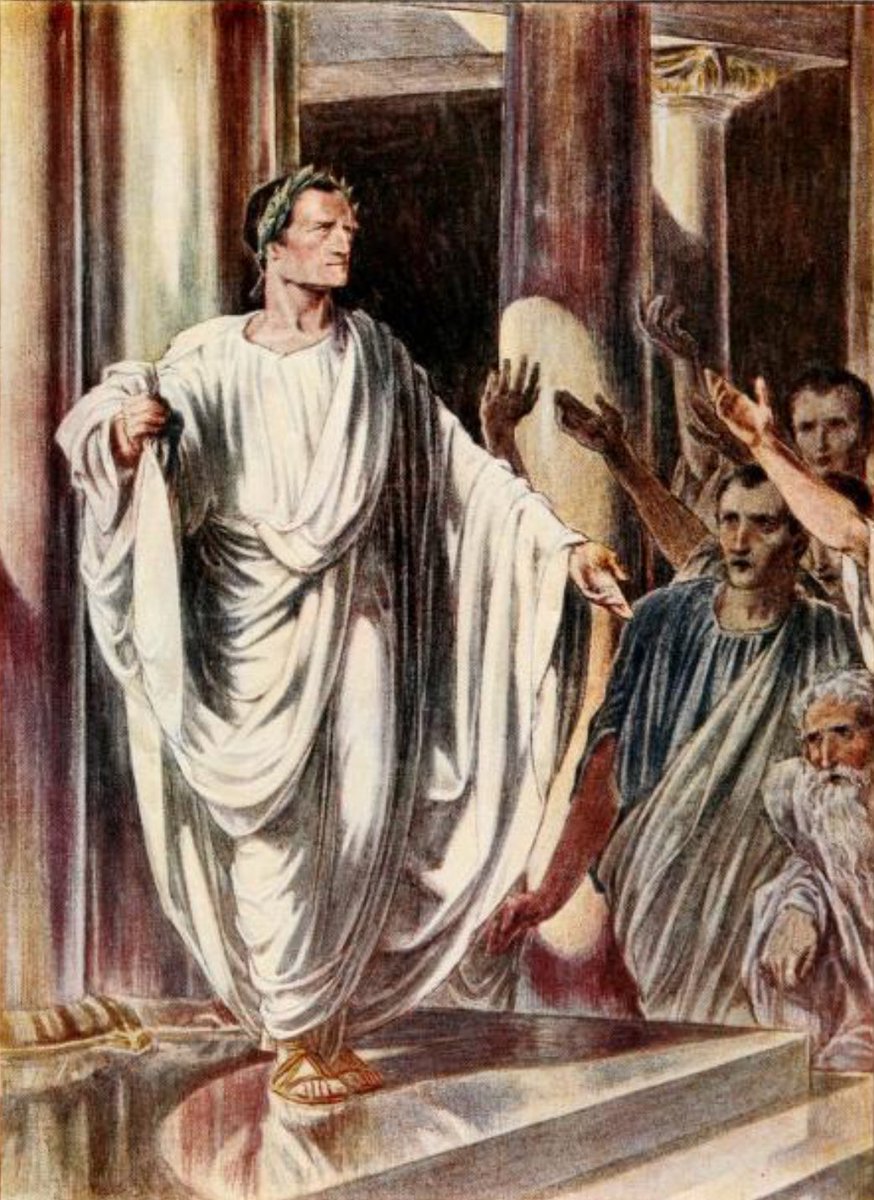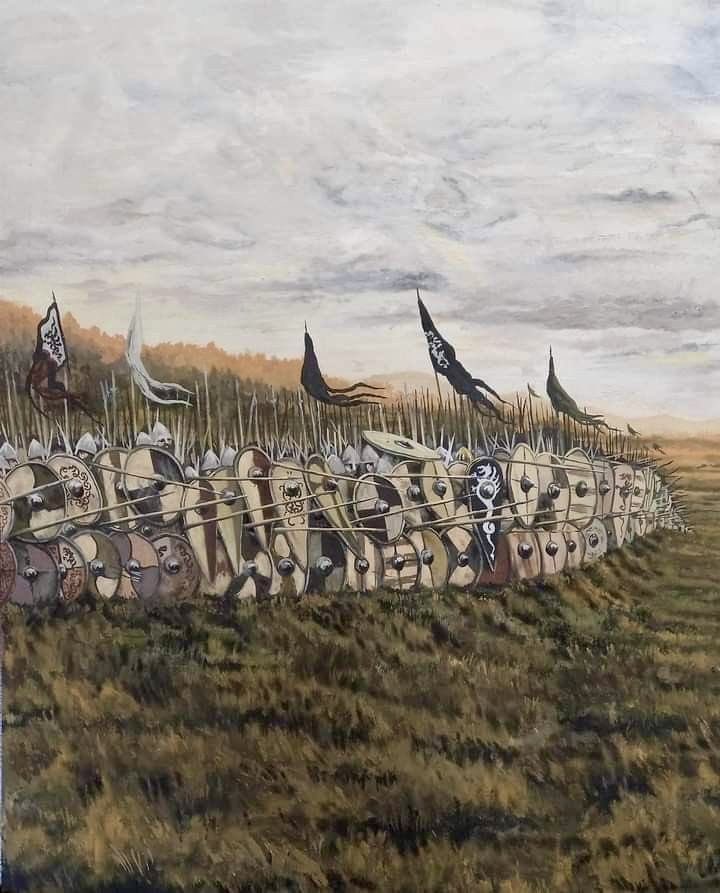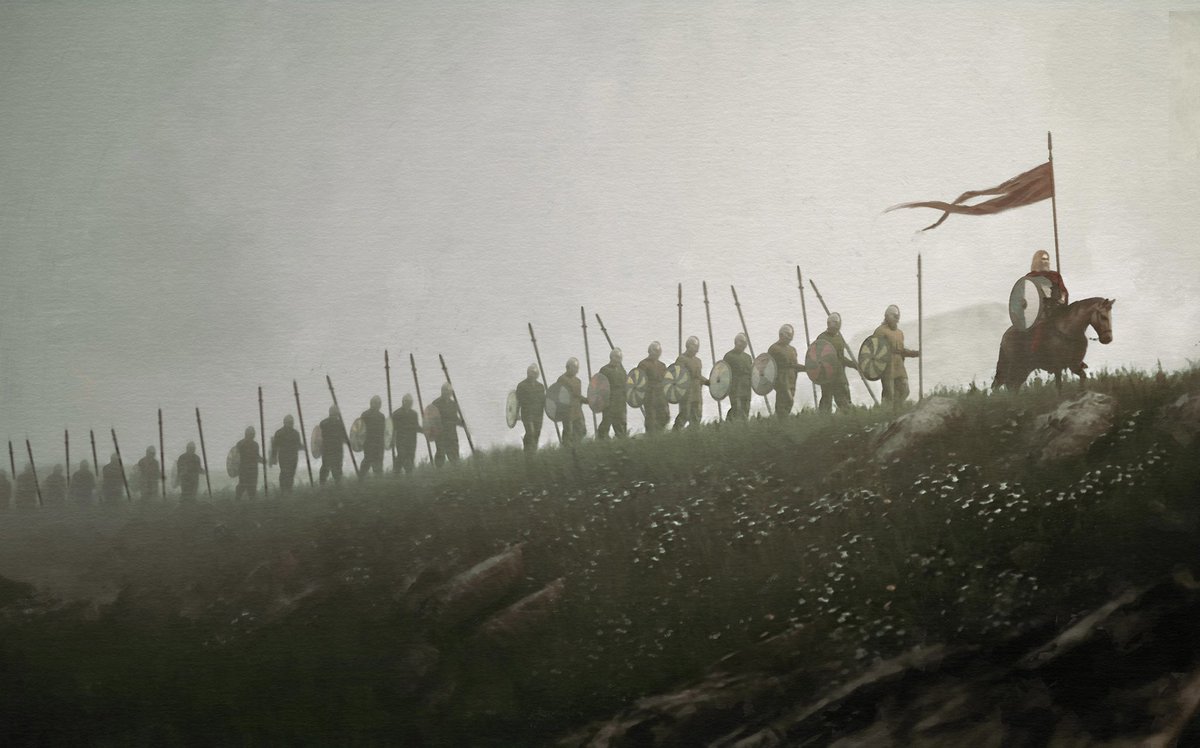In AD 1018:
The Lombard Melus & his Norman allies were crushed by the Catepan of Italy and his Varangians, fresh from the Bulgarian Wars!
At the 𝐒𝐞𝐜𝐨𝐧𝐝 𝐁𝐚𝐭𝐭𝐥𝐞 𝐨𝐟 𝐂𝐚𝐧𝐧𝐚𝐞!
The Lombard Melus & his Norman allies were crushed by the Catepan of Italy and his Varangians, fresh from the Bulgarian Wars!
At the 𝐒𝐞𝐜𝐨𝐧𝐝 𝐁𝐚𝐭𝐭𝐥𝐞 𝐨𝐟 𝐂𝐚𝐧𝐧𝐚𝐞!

In AD 1009;
The 33rd year of the reign of the emperor Basil II:
Melus and his brother Dattus rebelled against eastern Roman control of Apulia and quickly took Bari before losing the city in 1011. Fleeing to Salerno and the protection of the Pope, Melus had not given up his hopes of power in Southern Italy
The 33rd year of the reign of the emperor Basil II:
Melus and his brother Dattus rebelled against eastern Roman control of Apulia and quickly took Bari before losing the city in 1011. Fleeing to Salerno and the protection of the Pope, Melus had not given up his hopes of power in Southern Italy

In AD 1016
He intercepted some Norman pilgrims and made arrangements to hire Norman mercenaries to aid in the coming war, becoming what William of Apulia called ‘the first leader of the Norman race in Italy’
He intercepted some Norman pilgrims and made arrangements to hire Norman mercenaries to aid in the coming war, becoming what William of Apulia called ‘the first leader of the Norman race in Italy’

Upon learning that Melus and the Normans were ravaging Apulia, the Catepan Tournikios - the governor of the eastern Roman lands in Italy - sent Leo Pakianos with a force to face Melus on the banks of the river Fortore. 

Despite Tournikios bringing fresh reinforcements, the Romans were defeated, Pakianos was killed, and the Normans learned that the Romans ‘lacked bravery and preferred flight to resistance’.
Upon news of this, the Emperor Basil sent Basíleios Boïōánnēs (Βασίλειος Βοϊωάννης) to Italy
Upon news of this, the Emperor Basil sent Basíleios Boïōánnēs (Βασίλειος Βοϊωάννης) to Italy
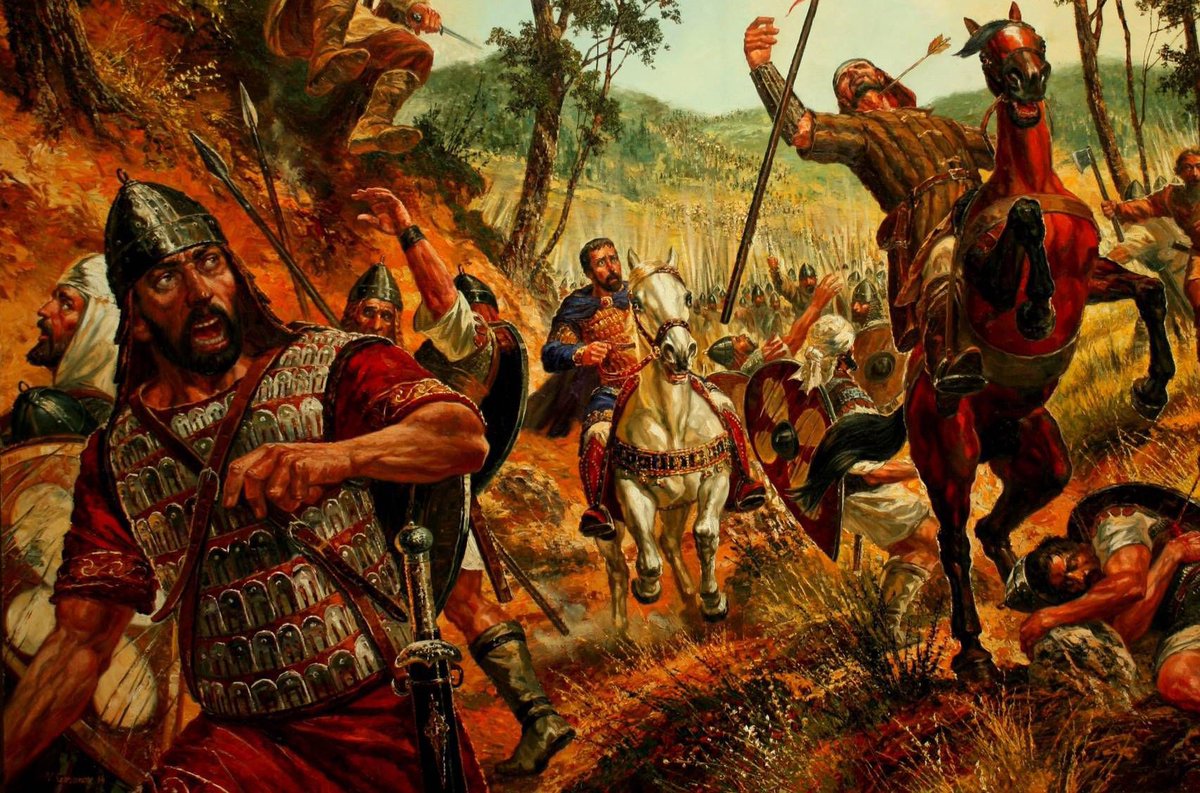
The new Catepan was reinforced by a large force of fearsome Varangians fresh from the emperors victorious campaigns against the Bulgars.
Boioannes wasted no time and immediately sought out Melus!
Boioannes wasted no time and immediately sought out Melus!

Melus’ army was bolstered by 250 Norman knights, led by Gilbert Buatère who, along with his brothers, was banished from Normandy after killing a relative of Duke Richard II 

However, Melus’ insurgency thus far had been restricted to sieges and small scale battles.
He was now faced with an Imperial army sent by the Emperor himself.
He was now faced with an Imperial army sent by the Emperor himself.

In AD 1018 the two forces met at Cannae and the Romans destroyed Melus’ army!
The battle hardened Varangians cut through the Lombards and Normans, slaying Gilbert and his brother Osmond!
The battle hardened Varangians cut through the Lombards and Normans, slaying Gilbert and his brother Osmond!

It is recorded that only ten Norman knights survived out of 250! Melus fled north and never again returned to Italy, ‘too ashamed to stay in his native land’. 

His brother Dattus had fled to a tower that had previously been given to him by the Duchess of Gaeta.
He would find no safety there and Boioannes along with Pandulf IV of Capua fell upon the tower and seized him.
He would find no safety there and Boioannes along with Pandulf IV of Capua fell upon the tower and seized him.

It is said that he was tied up in a sack with a monkey, a rooster, and a snake and tossed into the sea. Regardless of the veracity of this tale, he died.
And the success of Boioannes troubled the Pope and roused the interest of the German emperor Henry II who marched on the new fort at Troia but repeatedly failed to take it.
And the success of Boioannes troubled the Pope and roused the interest of the German emperor Henry II who marched on the new fort at Troia but repeatedly failed to take it.

The second battle of Cannae was the exact opposite of the first.
Whereas the first was a disastrous defeat of the ascendant Roman republic, the second was a resounding victory for the Roman Empire at the twilight of its power.
Whereas the first was a disastrous defeat of the ascendant Roman republic, the second was a resounding victory for the Roman Empire at the twilight of its power.

• • •
Missing some Tweet in this thread? You can try to
force a refresh


